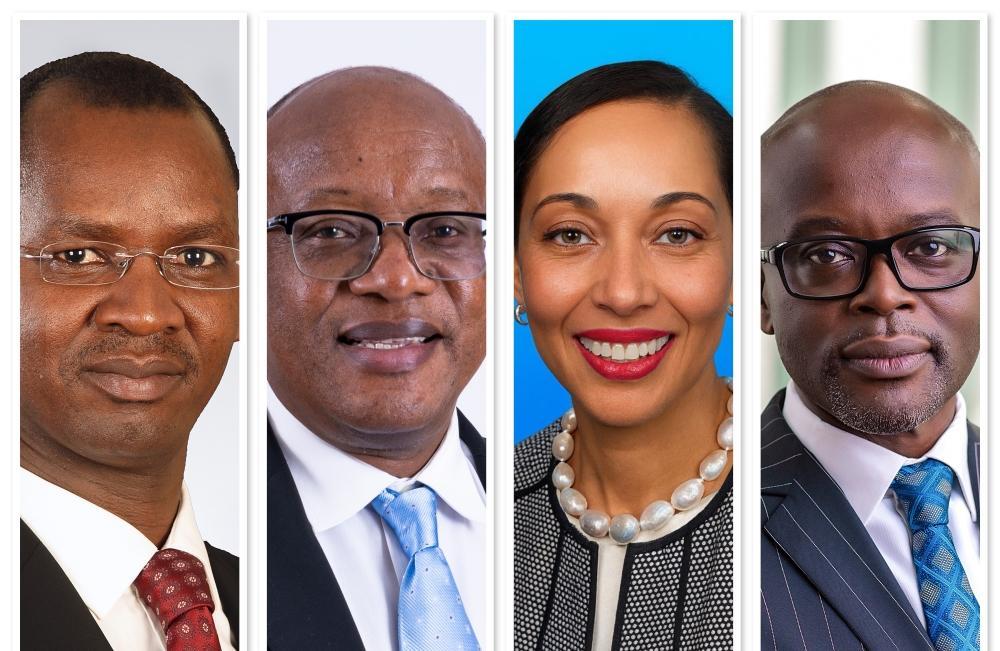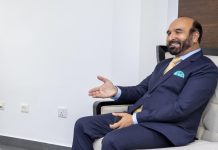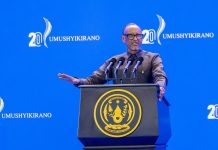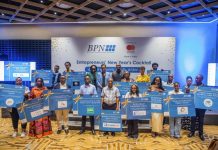Africa-Press – Rwanda. Amid ongoing global uncertainty, African business leaders are showing renewed confidence in the continent’s growth prospects. According to the KPMG 2025 Africa CEO Outlook, 79 per cent of African Chief Executive Officers (CEOs) are optimistic about their organisations’ growth in the year ahead, up from 64 per cent in 2024.
This optimism is translating into commitment to Artificial Intelligence (AI) and talent development, which CEOs see as key drivers of resilience and long-term competitiveness.
This annual survey was officially launched in Nairobi, Kenya, on November 5, gathering insights from more than 130 CEOs across Southern, Eastern, and Western Africa. Among those interviewed, 69 per cent said they have already adjusted their business strategies to navigate geopolitical and economic pressures, aligning closely with their global peers.
Within this surveyed population, AI and workforce development emerged as the top investment priorities. Sixty-nine per cent of CEOs plan to allocate between 10 to 20 per cent of their budgets to AI, 62 per cent are focusing on retraining and retaining high-potential talent, and 81 per cent believe that AI upskilling will directly influence their business success.
KPMG Africa, a leading provider of audit, tax, and advisory services, has positioned itself at the centre of Africa’s transformation journey. Through its “One Africa” strategy, the firm delivers continent-wide insights into emerging business trends, helping organisations adapt to global disruptions while strengthening regional competitiveness.
Speaking during the report’s launch, Ignatius Sehoole, Chief Executive Officer of KPMG South Africa and KPMG One Africa, emphasised that African CEOs are responding to uncertainty with bold, forward-looking investments.
“African CEOs are looking at spending at least 20 per cent of their budgets on AI. The global norm is about 14 per cent. We are spending a bit more,” Sehoole said.
“That tells me Africa will not wake up one day and find the whole world has disappeared into the distance as far as AI is concerned. AI is at the centre of every CEO’s agenda, and that gives me satisfaction.”
Benson Ndung’u, CEO and Senior Partner at KPMG East Africa, echoed this sentiment, noting that African executives are taking immediate action to align technology and people strategies.
“This time, CEOs expect returns within the first three years,” he said. “It’s about integrating AI, enabling systems, processes, and people to perform better. You cannot afford to ignore agentic AI because it is reshaping how and what you deliver to customers.”
Ndung’u added that the “war on talent for AI is becoming more intense” and urged leaders to prioritise reskilling from the top down. “We must start skilling from the top. If leadership does not lead the transformation that comes with AI, organisations risk losing competitiveness.”
AI is increasingly viewed as a strategic necessity rather than a future option. Sixty-one per cent of CEOs report investing heavily in AI adoption to enhance efficiency and growth, though 96 per cent cite data readiness as a major barrier. Many firms are taking pragmatic, context-specific approaches suited to Africa’s evolving digital infrastructure.
Regional concerns about quantum computing remain relatively low, with 14 per cent in East Africa, 35 per cent in West Africa, and 22 per cent in Southern Africa, though KPMG warns that these could expose vulnerabilities in the future.
As AI reshapes workforce needs, CEOs are responding proactively. Eighty-eight per cent of respondents expect to expand their workforce within the next year, reinforcing the belief that AI complements rather than replaces human talent.
While competition for AI expertise is growing, most African CEOs prefer internal upskilling over external hiring. Only 64 per cent fear losing skilled workers to competitors, compared with a global average of 70 per cent.
Sehoole addressed the link between AI and employment. He said, “There’s always this worry that AI will worsen unemployment in Africa. But when you talk to CEOs, it is actually the opposite. The focus is on retraining people to have the right skills to deal with AI. It is not about employing fewer people but looking for different skills.”
He emphasised the need for stronger collaboration between business and education systems. “We need to work with universities and governments to change syllabuses and rethink how we educate our people. The private sector must engage with the government to prepare Africa’s workforce for the future.”
The report further notes that African CEOs are increasingly confident about their domestic economies, with 63 per cent expecting local growth, up from 61 per cent last year.
In contrast, confidence in the global economy stands at 53 per cent, slightly higher than 2024’s 50 per cent but still trailing the global average of 68 per cent. Yet, 78 per cent of African CEOs remain confident in their own companies’ prospects, aligning closely with the global sentiment.
Sehoole reflected on this dynamic, stating, “What encourages me most is the growing confidence CEOs have in Africa’s own markets and, even more importantly, in their own organisations’ potential. That self-belief is what will power Africa’s development.”
Sustainability is also gaining ground as CEOs integrate Environmental, Social, and Governance (ESG) principles into corporate strategy. Seventy-nine per cent expressed confidence in adapting to varied ESG regulations, while 46 per cent have already embedded sustainability into their business models.
“CEOs are no longer viewing ESG as a side activity; it is becoming part of how we do business, embedded in every project, every decision, every process,” Sehoole said. “Our journey as African CEOs is not about instant gratification. It is about building long-term value for our communities, our economies, and our people. That is the confidence we must carry forward.”
For More News And Analysis About Rwanda Follow Africa-Press






